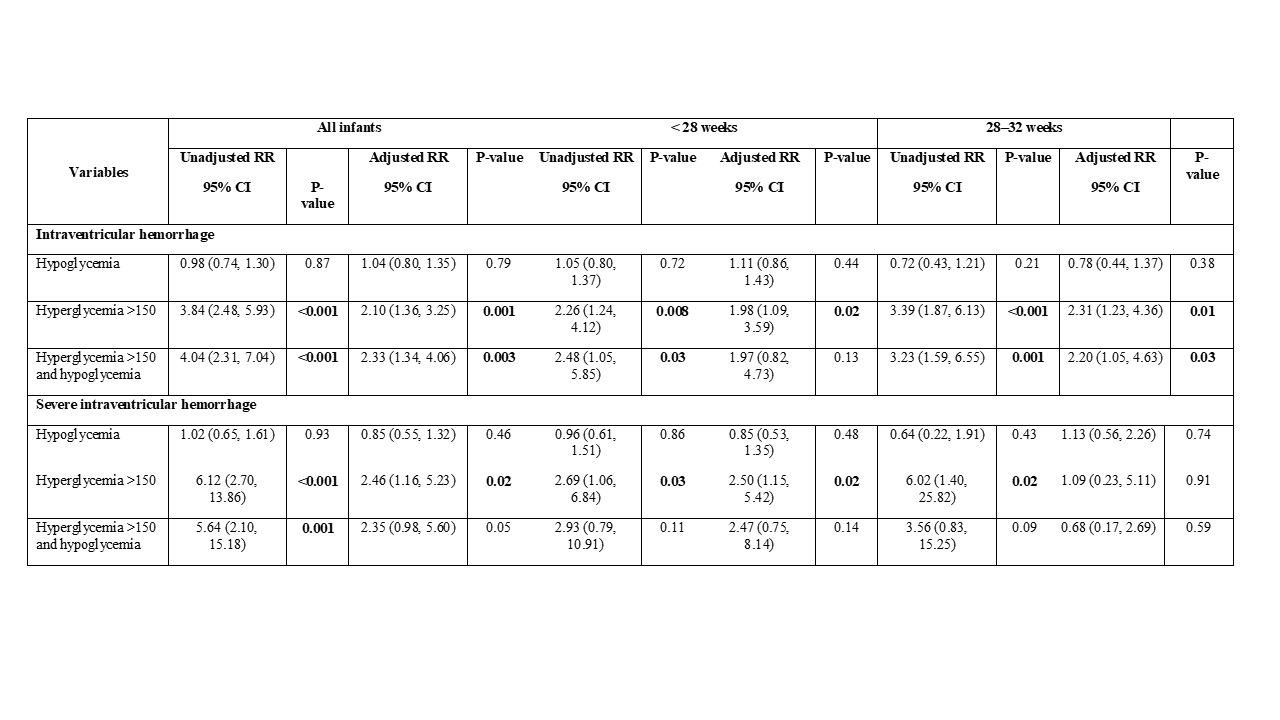Neonatology
Session: Neonatal General 8: ROP, Neurology
310 - Association of early dysglycemia with intraventricular hemorrhage and mortality in very low birth weight infants
Monday, May 6, 2024
9:30 AM - 11:30 AM ET
Poster Number: 310
Publication Number: 310.3274
Publication Number: 310.3274

Mountasser M. Al-Mouqdad, MD
NICU consultant
King Saud Medical City
Riyadh, Ar Riyad, Saudi Arabia
Presenting Author(s)
Background: Glucose is essential for the growth and development of fetuses and newborns. If the newborns do not obtain enough glucose, or cannot use glucose properly, hypoglycemia or hyperglycemia may occur. These conditions can have serious consequences, including brain damage.
Objective: To investigate the combined effect of hyperglycemia and hypoglycemia on intraventricular hemorrhage (IVH) and mortality recognizing that previous research has predominantly focused on examining these conditions independently.
Design/Methods: This study included very preterm infants who were born at King Saud Medical City, a tertiary referral center, and admitted to a level 3 neonatal intensive care unit between July 2018 and July 2023. Modified log-Poisson regression with generalized linear models and a robust variance estimator (Huber–White) were used to adjust for potential confounding factors.
Results: A total of 554 infants met the inclusion criteria. Hyperglycemia and/or hypoglycemia developed in 418 (75.5%) patients within the first postnatal week. During the study period, IVH occurred in 28.5% (N = 158), and severe IVH occurred in 72 infants (13%). In addition, 76 infants (13.7%) died during the study period. The multivariate regression revealed an association between the isolated hyperglycemia, combined exposure of hypo- and hyperglycemia, and development of IVH (Relative risk [RR] 2.10, 95% confidence interval [CI] 1.36, 3.25; RR 2.33, 95% CI 1.34, 4.06, respectively). Severe IVH was significantly associated with isolated hyperglycemia (adjusted relative risk [aRR] 2.46, 95% CI 1.16, 5.23). Death was associated with combined hypo- and hyperglycemia (adjusted hazardous ratio [aHR] 3.19, 95% CI 1.23, 8.26).
Conclusion(s): Combined hyper- and hypoglycemia in the first week of life of premature babies increases the risk and severity of IVH and neonatal mortality.

.gif)
.gif)
